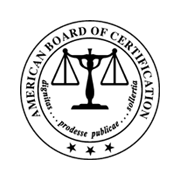
506 N. Armenia Ave. Tampa FL 33609 | 813-870-3100
The automatic stay and discharge injunction in bankruptcy:
People usually file bankruptcy to eliminate debt they owe. Bankruptcy law has two mechanisms to get to this result. The first is called the automatic stay. Section 362 of the bankruptcy law provides that when a bankruptcy is filed, creditors (persons or companies that are owed money by the person filing) are stayed, ie stopped, from taking collection efforts against the person filing. While there are exceptions to this rule (such as criminal proceedings, child support enforcement, and others) this will stop most creditors from continuing to call to collect the debts, or from continuing lawsuits to collect them.
One must distinguish between types of creditors to see how long this stay applies. For creditors who have a lien on specific property, such as car loans or mortgages, often the bankruptcy may eliminate the right to sue the person filing bankruptcy (the 'debtor') personally, but the stay against the property securing the debt may go away unless some provision is made for payment in the bankruptcy. In chapter 7, the options to provide for payment are very limited: a debtor can 'buy back' some property (not land or houses) by having the court rule what the value of the property is, and paying that value in cash to the creditor to buy the property from the creditor. There are even companies that specialize in offering new loans to debtors while they are in bankruptcy in order to buy back cars from secured creditors. In chapter 13 bankruptcy, instead of having to pay this value in a lump sum payment, the value may be paid over a three to five year period through the chapter 13 bankruptcy repayment plan.
Chapter 13 also helps if a debtor is behind on a mortgage, as a debtor can catch up the mortgage payments over a three to five year period, paying both the on-going mortgage payment as well as the amount they are behind in the bankruptcy case. Chapter 13 can also be used to pay taxes over time, and both chapter 7 and 13 may be able to eliminate some taxes without paying them in full. Most courts also have a process where debtors can attempt to go through mediation while in bankruptcy to try to get the mortgage company to agree to change the terms of the mortgage, though the mortgage company and the debtor ultimately must agree to such modification, or else go back to the option of paying the back payments over time or giving back the property.
Debtors will also file chapter 13 if they own too much stuff. States have limits on the value of what you can keep when you file bankruptcy. The limits differ in the different states. In Florida you can usually keep your home if it up to ½ acre inside the city limits, or up to 160 acres if outside the city limits. Florida is stricter than most other states in what other property you can keep: $1,000 of any non-real estate property, plus $1,000 equity in a motor vehicle. In addition to that, if you do not own and want to retain a homestead, then you can get another $4,000 of property to keep. If you are substantially over these limits, you may have to file chapter 13. In chapter 13 you can keep property even if it is over the value limit, but how much you are over affects how much you have to pay back to creditors.
Once the case is completed, a different law, called a discharge injunction, applies. This law creates an injunction against creditors from pursuing debts against the debtors when such debts were discharged in the bankruptcy case. If a creditor continues to sue a debtor for a credit card, or try to garnish the debtor's wages after the case is over, then the debtor can seek to reopen the bankruptcy and get sanctions against the creditor. Again, the issue can be more complicated, as some debts are not eliminated by the bankruptcy (including alimony, child support, property settlements if debtor filed chapter 7, recent tax debts, or debts a court finds to be related to fraud or misrepresentation by the debtor.
Michael Barnett, Esq.
Michael Barnett, PA
506 N Armenia Ave.
Tampa, FL 33609-1703
813-879-3100
Over 25 Years in Florida

Michael Barnett has provided his services in and around Tampa, Florida covering Hillsborough, Pasco and Polk County for over 20 years.
Board Certified

Mr. Barnett is board certified by the American Board of Certification in consumer bankruptcy law, and has been board certified since January 1993.
BBB Accredited

The BBB has determined that this business meets accreditation standards.